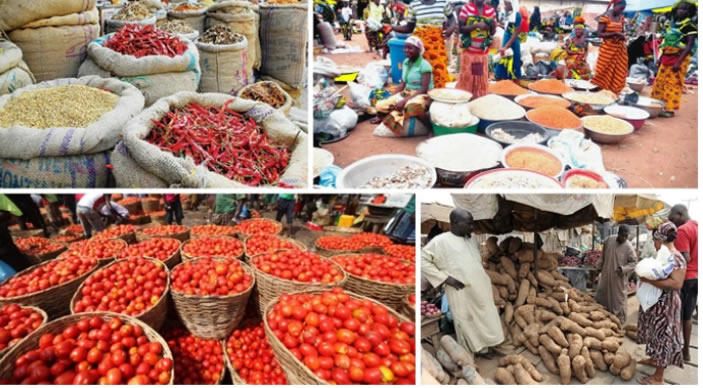Despite $3.3bn Agricultural Loan, Food Inflation Increases to 40% in Nigeria
Despite the Nigerian government’s efforts to combat rising food prices, food inflation has surged to nearly 40%, leaving many Nigerians struggling to afford basic staples. This sharp increase comes despite the government securing significant loans and investments to boost agricultural production. In May 2023, when President Bola Tinubu assumed office, food inflation stood at 24.82%. By November 2024, it had climbed to a staggering 40%, according to data from the National Bureau of Statistics.
This rapid increase in food prices is especially concerning given the government’s efforts to improve food security. President Tinubu had pledged to prioritize food availability and affordability, announcing plans to cultivate 500,000 hectares of farmland to grow essential crops like maize, rice, and wheat. However, these efforts seem to have been overshadowed by rising transportation costs, the devaluation of the naira, and persistent insecurity, all of which have contributed to the sharp rise in food prices over the past 19 months.
Data from the National Bureau of Statistics highlights a consistent increase in food inflation from May 2023 through November 2024. From 24.82% in May 2023, it steadily climbed each month, reaching 40% by November. This steady rise is a reflection of the challenges faced by Nigerian households, many of whom are finding it increasingly difficult to make ends meet due to the escalating cost of living.
Despite these troubling trends, the Nigerian government has secured loans totaling $3.334 billion (about N5.178 trillion) from the World Bank and the African Development Bank to enhance agricultural production. These funds are intended to support the development of agro-industrial hubs, improve livestock production, and increase food sufficiency in the country. For instance, the World Bank approved a $500 million loan to support livestock productivity and rural access to markets, while the African Development Bank allocated $2.2 billion for the creation of Special Agro-Industrial Processing Zones across Nigeria.
However, the impact of these loans on food prices has been limited so far. Experts have raised concerns about the effectiveness of these initiatives, pointing out that agricultural investments typically take time to show results. Associate Professor Unekwuojo Onuche from the University of Africa, Bayelsa, noted that while increasing food production is essential, the effects of such investments may take six months to a year to materialize. He also highlighted the challenge of rising fuel prices, which increase the cost of production and may offset the benefits of enhanced agricultural output.
Tobi Awolope, an agricultural economist at the University of Agriculture in Abeokuta, Ogun State, emphasized the logistical challenges that have hindered the effectiveness of agricultural interventions. She pointed out that small-holder farmers, who are crucial to the agricultural sector, often do not benefit from government support due to issues with targeting and distribution. Additionally, rising fuel costs have made it more expensive to transport food, further driving up prices.
Despite the challenges, the Nigerian government has also secured a private-sector investment worth $4.3 billion to improve fertilizer production, hybrid seed technology, and agricultural finance. This investment is expected to support the growth of agribusinesses in Nigeria’s 774 local government areas over the next five years. However, stakeholders continue to question whether these initiatives will be enough to bring down the cost of food, given the ongoing structural and logistical challenges in the agricultural sector.
As the Nigerian government continues to secure loans and investments to improve food production, the rising cost of food remains a major concern for millions of Nigerians. Experts agree that without addressing the underlying issues of fuel costs, logistical challenges, and the effective targeting of interventions, the desired impact on food prices may remain out of reach.
Question: How can Nigeria effectively reduce food inflation despite securing agricultural loans?
Answer: Experts suggest that increasing food supply and addressing logistical challenges, such as high fuel costs, are key to reducing food inflation. However, the impact of agricultural loans and investments may take time to materialize, requiring a more coordinated approach to tackling the country’s food security challenges.








